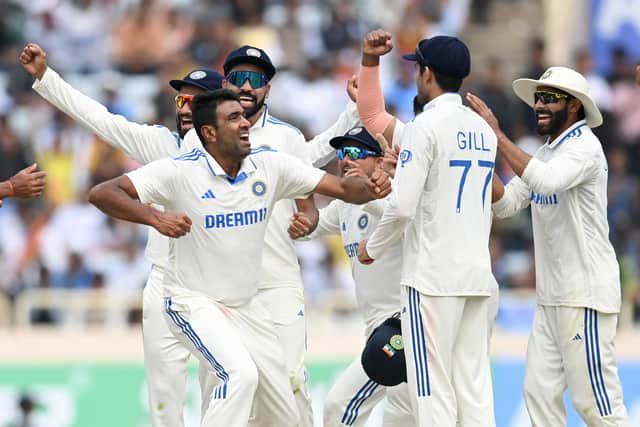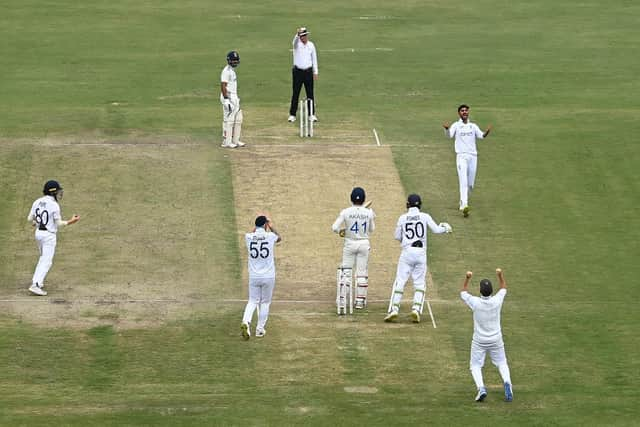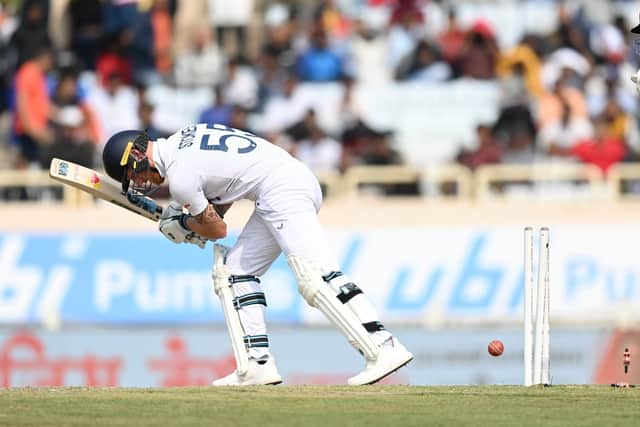Moaning about DRS is ridiculous… just get on with the game - Chris Waters
“In the old days, controversial decisions became talking points in the bars and clubs but everybody respected the umpire’s authority.
“Players should accept these things and move on, but all the money that has come into sport has turned their heads.”
Advertisement
Hide AdAdvertisement
Hide AdCan you guess which famous Yorkshire-born umpire said those words back in 2009 when DRS (cricket’s Decision Review System) was officially introduced?


Clue: it wasn’t Richard Kettleborough.
No, think more Barnsley way than Sheffield, lad.
Aye, that’s right… it was Harold ‘Dickie’ Bird.
Bird had been a long time retired when the demands of professionalism and market forces necessitated a greater degree of decision-making accuracy.


The now 90-year-old umpired the last of his 66 Tests back in 1996, a guard of honour by the players and a standing ovation from the crowd drawing - in trademark Dickie style - a tearful reaction as England played India at Lord’s.
Bird umpired in an era when television scrutiny was not as it is now, when there are more camera angles than you can shake a stick at, and when social media was not around either to amplify mistakes and facilitate criticism.
Advertisement
Hide AdAdvertisement
Hide AdIt was, some would say, a happier era and a more respectful game, too; there are many - this correspondent included - who “got where Dickie was coming from”, let’s put it like that.
Now that DRS is part of the furniture, though, and a feature for almost 30 years, there seems little point in questioning its authority as well.


On a third day in Ranchi in which the chief talking point beyond England’s collective batting failure was whether Joe Root should have been given out lbw on DRS, it felt that all that had really changed since Bird’s day was that the controversial umpiring decisions that were talking points then had been replaced by talking points concerning DRS.
Technology isn’t infallible but it is very good, and even initial sceptics such as myself would have to concede that it helps to eliminate howlers, with the predictive elements such as umpire’s call on ball-tracking tending to even themselves out over the course of a match/series.
Advertisement
Hide AdAdvertisement
Hide AdPerhaps best that we stop moaning about it and get on with the game - Root was out and, as umpires have quipped since time immemorial, that’s what it will say in the scorebook and newspapers, sunshine.
To the naked eye, as Root missed a ball from off-spinner Ravichandran Ashwin from around the wicket that struck him suspiciously close to outside the line of leg stump, which meant that he could not have been out, umpire Kumar Dharmasena’s decision not to uphold the appeal looked to be fair.
Bird - a renowned ‘not-outer’ - would surely have approved and India’s decision to then review seemed to reflect the significance of Root’s wicket as much as any unshakeable belief that he was actually out.
However, the requisite red lines confirmed the reality of the matter, and Root was on his way for 11 to go off and consult the replays along with his team-mates.
Advertisement
Hide AdAdvertisement
Hide AdFrom 65-3, England then collapsed from 110-3 to 145 all-out, leaving India - who closed on 40-0 - a further 152 to win the match and the series.
Ultimately, when it comes to DRS, cricket cannot have it both ways.
Either it uses - and trusts - the technology, or it doesn’t.
It cannot say “we like this decision” or “we don’t like that decision”.
Advertisement
Hide AdAdvertisement
Hide AdOtherwise, it is merely replacing one perceived error with another – technological for human.
Some would go further and scrap the predictive element of DRS entirely, meaning that if any part of the ball is hitting the stumps, it’s out.
The schools of thought on this tend to fall into the camps of batsmen and bowlers, with the latter understandably rather more keen.
On a day when DRS also worked in England’s favour (it really is a case of swings and roundabouts), the bigger picture was that the game and the series looked to have slipped away from Root and his colleagues.
Advertisement
Hide AdAdvertisement
Hide AdThey were not completely out of it - India will still need to bat well on a pitch that is ragging at times, albeit against spinners who are less experienced and skilful than their own.
Credit to young Shoaib Bashir, however, who completed his maiden five-wicket haul in first-class cricket as India extended their overnight 219-7 to 307 in reply to England’s 353.
The 20-year-old trapped Akash Deep leg-before to finish with 5-119 from 44 overs before dedicating the achievement to his two late grandfathers, with whom he used to watch cricket on TV going up.
It was an emotional moment that would have had more than just Dickie shedding a tear.
Comment Guidelines
National World encourages reader discussion on our stories. User feedback, insights and back-and-forth exchanges add a rich layer of context to reporting. Please review our Community Guidelines before commenting.